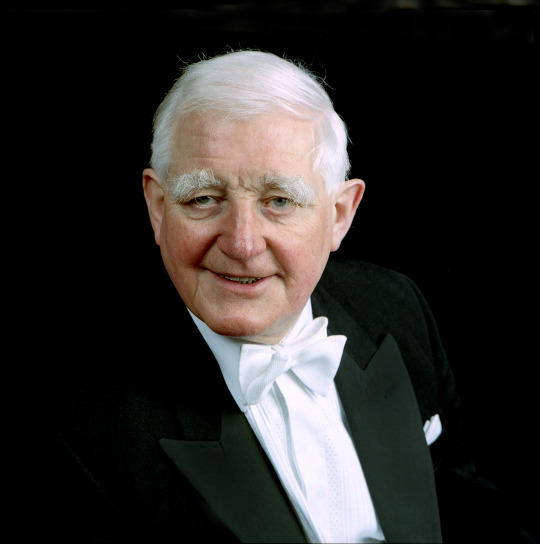#John Railton
Text







Man in a Suitcase: Burden of Proof (1.15, ITC, 1968)
"Life's pretty cheap where you come from, huh?"
"Oh yes. And when you stepped off that street, American, you stepped into my country."
"Not all the way, punk!"
#man in a suitcase#burden of proof#1968#itc#classic tv#peter duffell#edmund ward#richard bradford#john gregson#nicola pagett#wolfe morris#roger delgado#charles lloyd pack#gerald sim#oscar quitak#larry taylor#alastair hunter#john railton#richard coe#alan watts#john chandos#a... strange and somewhat regrettable episode. whilst it mostly avoids being overtly racist‚ it is unmistakably colonial in attitude and#has white saviour overtones. for more info see my roger delgado fave spotting post. it's even more disappointing bc this actually has a#solid plot‚ particularly the first half in which we get a rare sight of McGill doing the kind of work he was trained for (eagerly wiring up#an apartment with cameras and microphones‚ giddily pointing out his little tricks and whatnots). the end of the ep (centred on an embassy#in london) is perhaps a little farfetched only in that McGill appears to have been at the centre of what would almost certainly have been a#major international incident. Gregson was a household name thanks to film roles in his youth and more recently starring for ITC in Gideon's#Way; those pictures of him and Pagett on the American sets might suggest cut scenes as nothing like them appears in the ep itself#Gerald Sim's surly inspector from Dead Man's Shoes makes another appearance but has no scenes with our hero
4 notes
·
View notes
Text

John Cobb's 1946er LSR-Car Railton Mobil Special
cred: de.wikipedia.org/wiki/Railton_Special
9 notes
·
View notes
Text
David Badash at NCRM:
An Elon Musk Super PAC is allegedly targeting voters in “more than a half-dozen swing states that could determine the outcome of the 2024 election,” harvesting personal data under the guise of helping prospective voters register to vote, according to a CNBC report. After they hand over their personal information, the website says “thank you,” possibly leading them to believe they have registered to vote, when they have not.
“If a user lives in a state that is not considered competitive in the presidential election, like California or Wyoming for example, they’ll be prompted to enter their email addresses and zip code and then directed quickly to a voter registration page for their state, or back to the original sign up section. But for users who enter a zip code that indicates they live in a battleground state, like Pennsylvania or Georgia, the process is very different,” CNBC’s Brian Schwartz reports.
“Rather than be directed to their state’s voter registration page, they instead are directed to a highly detailed personal information form, prompted to enter their address, cell phone number, and age,” CNBC explains. “If they agree to submit all that, the system still does not steer them to a voter registration page. Instead, it shows them a ‘thank you’ page.”
CNBC also reports this 15-second video ad is from Musk’s America PAC, and uses video of the Trump assassination attempt to encourage prospective voters to the PAC’s website.
On Musk’s social media site X, Schwartz writes, “Billionaire Elon Musk has created a PAC collecting voter data from those living in key states through an online ‘register to vote’ form that does not directly register people to vote. All of this in an effort to help Donald Trump become president.”
Spyware, phishing, and disinformation researcher John Scott-Railton posted what appear to be screenshots of his experience at Musk’s Super PAC site, which he calls “Elon Musk’s America PAC bait-and-switch voter registration page.”
[...]
Don Moynihan, McCourt Chair of Public Policy at Georgetown University‘s McCourt School of Public Policy, remarked: “Getting people’s personal information on the promise of helping them to register to vote, and then not helping them to register to vote definitely seems like election fraud. This is what Elon Musk’s pro-Trump PAC is reportedly doing.”
Right-wing wanker Elon Musk’s America PAC is under scrutiny for data harvesting under the guise of helping prospective voters register to vote.
#Elon Musk#America PAC#Super PACs#Scams#Donald Trump#2024 Presidential Election#2024 Elections#2024 Trump Assassination Attempt#Data Harvesting
24 notes
·
View notes
Text
French prosecutors gave preliminary information in a press release on Monday about the investigation into Telegram CEO Pavel Durov, who was arrested suddenly on Saturday at Paris’ Le Bourget airport. Durov has not yet been charged with any crime, but officials said that he is being held as part of an investigation “against person unnamed” and can be held in police custody until Wednesday.
The investigation began on July 8 and involves wide-ranging charges related to alleged money laundering, violations related to import and export of encryption tools, refusal to cooperate with law enforcement, and “complicity” in drug trafficking, possession and distribution of child pornography, and more.
The investigation was initiated by “Section J3” cybercrime prosecutors and has involved collaboration with France’s Centre for the Fight against Cybercrime (C3N) and Anti-Fraud National Office (ONAF), according to the press release. “It is within this procedural framework in which Pavel Durov was questioned by the investigators,” Paris prosecutor Laure Beccuau wrote in the statement.
Telegram did not respond to multiple requests for comment about the investigation but asserted in a statement posted to the company's news channel on Sunday that Durov has “nothing to hide.”
“Given the existence of several preliminary investigations in France concerning Telegram in relation to the protection of minors' rights and in cooperation with other French investigation units—for instance, on cyber harassment—the arrest of Durov, does not seem to me like a highly exceptional move,” says Cannelle Lavite, a French lawyer who specializes in free-speech matters.
Lavite notes that Durov is a French citizen who was arrested in French territory with an arrest warrant issued by French judges. She adds that the list of charges involved in the investigation is “extensive,” a wide net that she says is not entirely surprising in the context of “France's ambiguous legislative arsenal” meant to balance content moderation and free speech.
Durov is a controversial figure for his leadership of Telegram, in large part because he has not typically cooperated with calls to moderate the platform's content. In some ways, this has positioned him as a free-speech defender against government censorship, but it has also made Telegram a haven for hate speech, criminal activity, and abuse. Additionally, the platform is often billed as a secure communication tool, but much of it is open and accessible by default.
“Telegram is not primarily an encrypted messenger; most people use it almost as a social network, and they’re not using any of its features that have end-to-end encryption,” says John Scott-Railton, senior researcher at Citizen Lab. “The implication there is that Telegram has a wide range of abilities and access to potentially do content moderation and respond to lawful requests. This puts Pavel Durov very much in the center of all kinds of potential governmental pressure.”
On top of all of this, many researchers have questioned whether Telegram's end-to-end encryption is durable when users do elect to enable it.
French president Emmanuel Macron said in a social media post on Monday that “France is deeply committed to freedom of expression and communication … The arrest of the president of Telegram on French soil took place as part of an ongoing judicial investigation. It is in no way a political decision.”
News of Durov's arrest is fueling concerns, though, that the move could threaten Telegram's stability and undermine the platform. The case seems poised, too, to have implications in long-standing debates around the world about social media moderation, government influence, and use of privacy-preserving end-to-end encryption.
Lavite says the case certainly invokes debates about “the balance between the right to encrypted communication and free speech on the one hand, and users' protection—content moderation—on the other hand.” But she notes that there is a lot of information about the investigation that is unknown and “a lot of blurry zones still.”
On Monday afternoon, Telegram seemed to be receiving a download boost from the situation, moving from 18th to 8th place in Apple's US App Store apps ranking. Global iOS downloads were up by 4 percent, and in France the app was number one in the App Store social network category and number three overall.
8 notes
·
View notes
Photo

Colin Bradbury, who has died aged 90, was the BBC Symphony Orchestra clarinettist whose dazzling cadenza in Sir Henry Wood’s Fantasia on British Sea Songs held audiences breathless at the Last Night of the Proms for many years. He became principal clarinet in the orchestra in 1960, and continued until his retirement in 1993.
During the 1970s, with Pierre Boulez as the principal conductor, the orchestra achieved worldwide prominence. Bradbury described it as “a unique time, musically and orchestrally – a golden age”. Away from the orchestra, he became an outstanding exponent of the clarinet’s lesser-known 19th-century repertory, in recital and on record.
He was born in Blackpool, the younger child of Jim Bradbury, a railway clerk, and his wife, Nellie (nee Cookson), both amateur singers. Encouraged to sing from an early age by his mother (his father died when he was four), Colin began to learn the piano at seven and soon bagged the only B flat clarinet at his primary school. Using his initiative, he worked out the transposition and was soon playing along with the school recorder group.
At Blackpool grammar school he started clarinet lessons with a local semi-professional, Tom Smith, and acquired a pair of simple-system Barret-action Albert clarinets. In 1947 he auditioned for the newly established National Youth Orchestra, becoming a founder member.
His sister Jean went to university, intending to become a teacher, and Colin assumed he would follow. A career in music had not crossed his mind, so when the viola player Bernard Shore came to the second NYO course to talk to young musicians intending to enter the profession, he did not attend. Ruth Railton, director of the NYO, took him for a long walk, four times around the Leys school in Cambridge, where the course was being held, and by the end he was persuaded. She went on to offer him the opportunity to play the Mozart Clarinet Concerto with the NYO at the Edinburgh festival in 1951, on condition that he left school that Easter and began studying with the clarinettist Frederick Thurston.
This he did, missing his A-levels, and started at the Royal College of Music in London in the autumn of 1951, funded by a Blackpool festival scholarship. After a year he left to join the Irish Guards, then returned to the college and completed his national service concurrently with the rest of his music studies. He won the Tagore gold medal for the best male student of his year.
During the summer of 1956 he drove an ice-cream delivery truck to get himself out of debt, having not quite paid for a 22-litre Jaguar with his earnings from a West End run of Summer Song that had folded unexpectedly.
That September, he joined the Sadler’s Wells orchestra as second clarinet, becoming principal in 1957. Playing in the pit was enjoyable, but also “frustrating for an extrovert, conceited character like me, but I learned a great deal”. He married Janet Forbes, the principal flute, in 1959.
During the 1959-60 season he began working with John Carewe and the New Music Ensemble and took part in Schönberg’s Pierrot Lunaire in the second of the new series of BBC Thursday Invitation Concerts. He was also invited to give some solo recitals for the BBC Home Service; at the first concert he played Seiber’s Andantino Pastorale and the Sonatine by Honegger.
In September 1960 he joined the BBC Symphony Orchestra (BBCSO) as principal clarinet. When the orchestra appointed co-principals in 1963, Bradbury shared the position with Jack Brymer for seven happy years. During that period, with more flexible working hours, he was able to play with other orchestras such as the LSO and the Philharmonia and take part in recordings. He also performed as a soloist, playing the Mozart Concerto, the Nielsen Concerto, the Weber Concertino and the Debussy Première Rhapsodie at the Proms.
During the 70s the structure of the BBCSO was changed and Brymer moved on to the LSO. It was during this period that Bradbury was elected chair of the orchestral committee, representing his fellow players’ interests.
In 1979, Bradbury’s old teacher, Smith, sent him his collection of amusing 19th-century pieces, the sort that the younger Bradbury had been rather snobbish about. Together with the pianist and scholar Oliver Davies, he produced The Victorian Clarinettist – the repertoire of the 19th-century virtuoso Henry Lazarus. This was followed by three more LP records: The Drawing-Room Clarinettist, The Italian Clarinettist and The Edwardian Clarinettist; selections from these LPs were reissued in CD format as The Virtuoso Clarinettist (1990), and The Art of the Clarinettist (1994).
In 1993, Bradbury retired from the BBCSO, and made the CDs The Bel Canto Clarinettist (1996), a sequence of 19th-century opera paraphrases, and The Victorian Clarinet Tradition (1998), linking Bradbury to Lazarus through Lazarus’s pupil Charles Draper, and Draper’s pupil Thurston. An interest in computer music software took Bradbury on to publishing good editions of these 19th-century works under his own imprint, Lazarus Edition.
From 1963 to 2000 he was professor of clarinet at the Royal College of Music, eventually becoming head of woodwind. His greatest joy was the RCM Wind Ensemble. Having no love of wind bands (which add saxophones and brass to woodwinds), he created a Harmonie ensemble – woodwinds and horns, as for the wind music of Mozart – which toured extensively, with visits to Japan and Vienna.
In 1999 he revived an earlier partnership with the pianist Bernard Roberts to record both Brahms sonatas together with the Hindemith Sonata. A review in BBC Music magazine commented: “Bradbury plays in a beautifully natural way without resorting to the forced rubato adopted by some artists in a contrived attempt to be different, and he allows the music to speak for itself.”
Bradbury is survived by Janet and their five children, Keith, Louise, Paul, John and Adrian, and 15 grandchildren.
🔔 Colin Bradbury, clarinettist, born 4 March 1933; died 28 May 2023
Daily inspiration. Discover more photos at http://justforbooks.tumblr.com
12 notes
·
View notes
Text

Chance Encounters #003
https://www.mixcloud.com/thomasmartinnutt/chance-encounters-003/
Lucy Railton, Adam Matschulat, Gordon Hempton, Ilia Belorukov & Vasco Trilla, Red Wine & Sugar, Mabe Fratti with Kit Schluter, Gazelle Twin, Vladimir Ussachevsky, Henning Christiansen, Phil Tanner, Roger Eno, Siobhán McKenna, Satoko Fujii & Otomo Yoshihide, John Butcher, Eiko Ishibashi, Coil, Félix Blume, Ian William Craig, Foresteppe, Bernard Parmegiani
4 notes
·
View notes
Text
Today on the spring equinox our new album 'Never The Same Way Twice' makes it's way into the World. The album is a collection of previously unreleased recordings to mark twenty years since the release of our self-titled debut album. Two decades is a long time and the over-riding emotion I have for this album is one of gratitude, to those who have supported our music and everyone that has taken time to listen. In particular I am so very grateful to all the amazing musicians who have given their time and talents to make The Memory Band what is is, I am forever in their debt. There is not the space to thank everyone who has been part of the band but the people who perform on this album are as follows: John Andrews, Liam Bailey, Liza Bec, Alex Bonney, Helene Bradley, Olie Brice, Jonny Bridgwood, Findlay Brown, Dee Byrne, Hannah Caughlin, Olivia Chaney, Howard Cottle, Al Doyle, Sam Genders, Adem Ilhan, Lisa Knapp, Jennymay Logan, Simon Lord, Paul McGee, Rhys Morgan, Tom Page, Polly Paulusma, Jeremy Radway, Lucy Railton, Jess Roberts, Quinta, Sarah Scutt, Rob Spriggs, Serafina Steer, Alexis Taylor, Fred Thomas, Jon Thorne and Nancy Wallace. You are all marvellous March hares.
Stephen Cracknell. 20.03.2004
1 note
·
View note
Text
Apple users are being urged to update their products immediately to protect against a powerful new spyware that infiltrated devices without any clicks.
The tech company released updates to patch two zero-day exploit chains on Thursday.
It comes after an employee of the Washington DC-based civil society organization Citizen Lab found the zero-click vulnerability delivering Pegasus mercenary spyware, according to John Scott-Railton, a researcher for the group.
1 note
·
View note
Link
[ad_1] Researchers at digital watchdog group Citizen Lab said on Thursday they found spyware they linked to Israeli firm NSO that exploited a newly discovered flaw in Apple devices. While inspecting the Apple device of an employee of a Washington-based civil society group last week, Citizen Lab said it found the flaw had been used to infect the device with NSO's Pegasus spyware, it said in a statement. "This shows that civil society is once again serving as the early warning system about really sophisticated attacks," said John Scott-Railton, senior researcher at Citizen Lab, which is based at the University of Toronto's Munk School of Global Affairs and Public Policy. Citizen Lab did not provide further details on the affected individual or the organization. The flaw allowed compromise of iPhones running the latest version of iOS (16.6) without any interaction from the victim, the digital watchdog said. Apple issued new updates on its devices after investigating the flaws reported by Citizen Lab. An Apple spokesperson said it had no further comment, while Citizen Lab urged consumers to update their devices. A NSO spokesperson said it did not have any immediate comment on the Citizen Lab research. The Israeli firm has been blacklisted by the US government since 2021 for alleged abuses, including surveillance of government officials and journalists. [ad_2]
0 notes
Text
Assistir Filme Vidas Separadas Online fácil
Assistir Filme Vidas Separadas Online Fácil é só aqui: https://filmesonlinefacil.com/filme/vidas-separadas/
Vidas Separadas - Filmes Online Fácil

Nomeado em 1958 para 7 prêmios da academia, incluindo Melhor Filme, e ganhador de 2: Melhor Ator para David Niven e Melhor Atriz Coadjuvante para Wendy Hiller. Vidas Separadas é "um filme inteligente e provocante" (Variety) e uma obra-prima cinematográfica repleta de compaixão e uma tocante sensibilidade. Viaje para o Hotel Beauregard, onde todos os excêntricos hóspedes compartilham um mesmo sentimento, a solidão. Veremos o Major Pollack (David Niven), que esconde um tenebroso segredo por trás da superfície polida de um semblante militar; Sibyl Railton-Bell (Deborah Kerr), uma tímida e neurótica ex copeira que não tem coragem para livrar-se de sua dominadora mãe: John Malcom (Burt Lancaster), um desencantado escritor que afoga a amargura no álcool; e Ann Shankland (Rita Hayworth), cujo narcisismo mascara um profundo medo de envelhecer sozinha e sem amor. Em uma emocionante noite, esses quatro infelizes vão enfrentar seus mais escondidos segredos, e mudar as suas vidas para sempre.
0 notes
Text
Mass Surveillance Technologies Put in Place During Pandemic Aren’t Going Away
Mass surveillance technologies put in place to protect public health during the COVID-19 pandemic haven't gone away. Instead, they've been expanded in an effort to exact worldwide social control.
— By Dr. Joseph Mercola | January 13, 2023

Story at a Glance:
An investigation by The Associated Press (AP) reveals pandemic-era mass surveillance technologies are being utilized as instruments of control.
In China, COVID-19 QR codes have been used to restrict movement, protests and other forms of dissent.
In Israel, the Shin Bet security agency used COVID-19 contact tracing technology to send text messages accusing innocent people of acts of violence.
There is fear that COVID-19 mass surveillance technologies will become a measure for widespread social control in which health data, housing information, financial profiles and more are used to create a comprehensive profile of each individual on earth.
The solution to opting out of the madness and protecting your personal privacy and liberties as much as possible is not to voluntarily give up your control and information.
Much like air travel was fundamentally changed post-9/11 — justified by national security and the “war on terror” — the world is now profoundly different than its pre-COVID-19 state. Freedoms taken for granted in 2019 were abruptly taken away in 2020, again justified by national security and public health.
But now, even with COVID-19 neutralized, technologies supposedly put in place to monitor and track the virus haven’t gone away.
On the contrary, they’re still being used and expanded throughout the world, revealing that mass monitoring of the global population wasn’t about COVID-19 after all but something much bigger, with the potential to eliminate freedom as we know it.
COVID-19 Technologies Being Used For Control
A year-plus investigation by The Associated Press reveals a concerning trend worldwide in which pandemic-era mass surveillance technologies are being utilized as instruments of control.
“In the pandemic’s bewildering early days, millions worldwide believed government officials who said they needed confidential data for new tech tools that could help stop coronavirus’ spread. In return, governments got a firehose of individuals’ private health details, photographs that captured their facial measurements and their home addresses,” AP noted.
Now individuals are finding that data is being used against them — restricting travel and activism, in law enforcement cases and even being shared with spy agencies.
As John Scott-Railton with internet watchdog Citizen Lab told AP, “Any intervention that increases state power to monitor individuals has a long tail and is a ratcheting system. Once you get it, is very unlikely it will ever go away.”
Surveillance in China Used to Stifle Dissent
In China, citizens were required to install cellphone apps that produce QR codes depending on health status. A green result, based on PCR test results, allows a person to move about freely while a yellow or red result restricted travel or required home confinement.
Following widespread demonstrations, the country stated it would no longer enforce national-level health codes to open up travel between provinces.
But Beijing was still requiring local codes for admittance into restaurants, gyms, offices and more. At times over the last three years, entry to a supermarket could be restricted unless a green code was presented, and residents could be quarantined if they were a close contact to someone who tested positive for COVID-19.
The AP investigation, supported by the Pulitzer Center on Crisis Reporting, also revealed that the government used COVID-19 codes to stop dissent:
“In early September, former wealth manager Yang Jiahao bought a train ticket to Beijing, where he planned to lodge various complaints with the central government.
“The night before, a woman he described as a handler invited him to dinner. Handlers are usually hired by state security as part of ‘stability maintenance’ operations and can require people to meet or travel when authorities worry they could cause trouble.
“Yang had a meal with the handler, and the next morning Guangzhou health authorities reported a COVID-19 case less than a kilometer from where they dined, he said.
“Based on city regulations, Yang’s code should have turned yellow, requiring him to take a few COVID tests to show he was negative.
“Instead, the app turned red, even though tests showed that he didn’t have COVID. Yang was ordered to quarantine and a paper seal was placed on his door.”
In another example, bank customers who were unable to access their online bank accounts attempted to travel to Zhengzhou to protest.
When they arrived at the train station, their QR codes turned red and they were escorted by police to quarantine in the basement.
In all 1,317 people traveling to the city to protest the banking commission received red codes — picked up at the high-speed rail train station, the airport and the highway.
Israel’s Shin Bet Security ‘Repurposing’ Surveillance Tech
A similar trend is occurring in Israel, where the Shin Bet security agency repurposed phone surveillance technology used to monitor militants for COVID-19 contact tracing.
It’s since been repurposed again and has sent text messages accusing innocent people of acts of violence during a period of unrest in May 2021 at the Al-Aqsa Mosque and vowing, “We will hold you accountable.”
Majd Ramlawi was among those who received the text. He’s a barista at a coffee shop outside the mosque compound, an area peppered with security cameras. “It’s like the government is in your bag,” Ramlawi told the AP. “When you move, the government is with you with this phone.”
AP reported:
“The Shin Bet’s domestic use of the technology has generated an uproar over privacy and civil liberties within Israel, as well as questions about its accuracy. The Ministry of Communications, which oversees Israel’s telecommunications companies, refused a request seeking further details submitted for the AP by the Movement for Freedom of Information, a nonprofit that frequently works with media organizations.
“Gil Gan-Mor, an attorney with the nonprofit Association for Civil Rights in Israel, estimates that hundreds of Arabs in Jerusalem received the threatening message during the unrest and said the mass text message blast was unprecedented. ‘You cannot just say to people, ‘We are watching you … and we will get revenge,’ he said. ‘You cannot use this tool to frighten people. If you have something against someone, you can put them on trial.’”
Surveillance Overreach is a Global Problem
The AP obtained documents via the Freedom of Information Act, revealing that countries around the globe are engaging in mass surveillance of their citizens.
Mexico — In the Mexico City suburb Huixquilucan, a surveillance tool was implemented during the pandemic that transmits location, live video and audio of emergency callers to authorities. The technology was said to be necessary for public safety.
Pakistan — The country used military spyware and intelligence services to create an app that identified people infected with COVID-19 as well as those nearby. The Radius Alert function was criticized for privacy violations and leaving users vulnerable to tracking and cyberattacks.
South Africa — Authorities used technology developed to track wildlife poachers for pandemic contract tracing. Movement restrictions were enforced and “smart policing” technologies, including facial recognition and automatic license plate scanners, were implemented in certain cities.
Indonesia — The Health Ministry’s eHAC app collected passport numbers, government IDs and COVID-19 testing status from users as a requirement for travel to or within Indonesia. Data from 1.3 million people on the app was left exposed to potential fraud on an open server.
Singapore — Data collected by Singapore’s Trace Together COVID-19 app is available to law enforcement to investigate certain crimes designated serious offenses.
In India, meanwhile, facial recognition technologies were used to enforce mask mandates, with police taking pictures of people not wearing the masks, or wearing them incorrectly.
Such technologies have been rapidly expanded since the pandemic, and now a patrolling officer can randomly scan a person’s face in public and use an app to check for any past criminal activity.
According to the Associated Press (AP):
“[Hyderabad] Police Commissioner C.V. Anand said the city has spent hundreds of millions of dollars in recent years on patrol vehicles, CCTV cameras, facial recognition and geo-tracking applications and several hundred facial recognition cameras, among other technologies powered by algorithms or machine learning.
“Inside Hyderabad’s Command and Control Center, officers showed an AP reporter how they run CCTV camera footage through facial recognition software that scans images against a database of offenders … Officers decide who they deem suspicious, stoking fears among privacy advocates, some Muslims and members of Hyderabad’s lower-caste communities.”
Apps in Australia were also implemented to collect data and notify people if they were in the vicinity of someone who tested positive for COVID-19. But the data was later collected by intelligence agencies.
At the local level, citizens used a check-in app that would notify them if a COVID-19 outbreak occurred in their area. But law enforcement used the data for criminal investigations and contact tracing.
There is fear that the technologies will become a measure for widespread social control, in which health data, housing information, financial profiles and more are used to create a comprehensive profile of each individual on earth.
“Surveillance today is being posed as a technological panacea to large social problems in India, which has brought us very close to China,” Apar Gupta, executive director of the New Delhi-based Internet Freedom Foundation, told AP.
“There is no law. There are no safeguards. And this is general purpose deployment of mass surveillance.”
Pandemic Accelerated Mass Collection of Data in U.S.
In 2020, the U.S. gave $24.9 million to data analytics software company Palantir Technologies to support the U.S. Department of Health and Human Services’ COVID-19 response. AP reported:
“Documents obtained by the immigrant rights group Just Futures Law under the Freedom of Information Act and shared with the AP showed that federal officials contemplated how to share data that went far beyond COVID-19.
“The possibilities included integrating ‘identifiable patient data,’ such as mental health, substance use and behavioral health information from group homes, shelters, jails, detox facilities and schools.”
The Centers for Disease Control and Prevention also purchased cellphone location data in 2021. The “mobility insights” data revealed the daily locations of at least 20 million cellphones, courtesy of “device IDs” provided by data broker Cuebiq.
The ID can link information to individual cell phones and could be used to assess the effects of lockdowns and business closures, among many other more nefarious uses.
As Scott-Railton with Citizen Lab told AP, “What COVID did was accelerate state use of these tools and that data and normalize it, so it fit a narrative about there being a public benefit. Now the question is, are we going to be capable of having a reckoning around the use of this data, or is this the new normal?”
Are They Watching Your Every Move?
Measures toward authoritarian control and mass surveillance have been increasing worldwide, and in the U.S. Silicon Valley and the national security, state are now fused, according to one of my favorite independent journalists, Whitney Webb.
The decades-long wars against domestic dissidence have always involved technology like databases, and now it’s progressing to technology like facial recognition apps and the widespread use of cameras.
The Chinese government has given billions to the video surveillance company Hikvision, for instance, whose cameras have spread throughout the globe. Their low costs, courtesy of Chinese subsidizing, allowed them to outpace their competition, but concerns have risen that they’re ushering in a police state and may act as a “backdoor to Beijing.”
The company is a heavyweight in the industry, capable of producing 260,000 cameras daily, which works out to two for every three people born each day.
In Britain, 6 million cameras are in use — most of them provided by Hikvision — while the company’s presence has also increased, increasing from 70 U.K. staff members in 2018 to 128 in 2021.
Among Hikvision’s technologies widely used in Britain were heat detection cameras brought on to detect COVID-19 symptoms in 2020.
Worldwide, millions of Hikvision’s cameras are in use, concentrating in major cities, including more than 750,000 devices in the U.S.
Hikvision also has a U.S. subsidiary called EZVIZ, which is based in California and calls itself a “global smart home security brand” that creates a “safe, convenient and smart life for users through its intelligent devices, advanced AI technologies and cloud services.”
Many people have embraced the convenience of “smart” devices in their homes and wearable devices, but there are dangers in intertwining mass surveillance systems with daily living, whether they’re made by Hikvision or another company.
The solution to opting out of the madness, and protecting your personal privacy and liberties as much as possible, is to not voluntarily give up your control.
They’re counting on you taking your cellphone with you everywhere and adopting other forms of digital control, like vaccine passports, smart devices and central bank digital currencies.
When given the choice to opt-in to the latest privacy-sapping technology, don’t.
— Originally published by Mercola. | ChildrenHealthDefense.Com
0 notes
Text
Apple security update flaw iphones iwatches

#Apple security update flaw iphones iwatches pdf
#Apple security update flaw iphones iwatches update
Many apps will automatically create a preview or cache of links in order to improve the user experience," Schless said. "Pegasus is delivered via a malicious link that's been socially engineered to the target, the vulnerability is exploited and the device is compromised, then the malware communicated back to a command-and-control (C2) server that gives the attacker free reign over the device.
#Apple security update flaw iphones iwatches update
Apple releases security update for vulnerability in iPhones, iPads and Macs 03:37. It can now be deployed as a zero-click exploit, which means that the target user doesn't even have to tap a malicious link for the surveillanceware to be installed, Schless explained, adding that while the malware has adjusted its delivery methods, the basic exploit chain remains the same. Apple warns of security flaw for iPhones, iPads and Macs that allows hackers to access devices. Hank Schless, senior manager of security solutions at Lookout, said the tool has continued to evolve and take on new capabilities. In 2016, cybersecurity company Lookout worked with Citizen Lab to discover Pegasus. "End-to-end encryption keeps everyone safe, especially those from vulnerable communities - like journalists, activists, and LGBTQ+ community members in more conservative countries." In a longer report about the vulnerability, Citizen Lab researchers said that it is the "latest in a string of zero-click exploits linked to NSO Group." Their security needs to be a *top* priority." They are on every device and some have a needlessly large attack surface. Popular chat apps are the soft underbelly of device security. Discovery is inevitable byproduct of selling spyware to reckless despots. AppleclosesiphonesiwatchessecurityspywareUpdate. But here we are.again: their exploits got discovered by us because they were used against an activist. spyware company, had infected Apple products without so much as a click. "NSO Group says that their spyware is only for targeting criminals and terrorists. Victim sees *nothing,* meanwhile Pegasus is silently installed and their device becomes a spy in their pocket," Scott-Railton explained.
#Apple security update flaw iphones iwatches pdf
Thing is, the '.gif' files.were actually Adobe PSD & PDF files.and exploited Apple's image rendering library. A recent a re-analysis yielded something interesting: weird looking '.gif' files. "Back in March my colleague Bill Marczak was examining the phone of a Saudi activist infected with Pegasus spyware. They found that the vulnerability has been in use since at least February. John Scott-Railton, a senior researcher at Citizen Lab, spoke out on Twitter to explain what he and Citizen Lab senior research fellow Bill Marczak found and reported to Apple.

0 notes
Photo








“...until they are no further use to us.”
Death to the Daleks - season 11 - 1974
#doctor who#classic doctor who#classic who#third doctor#jon pertwee#death to the daleks#richard railton#john abineri
73 notes
·
View notes
Text
Today in Christian History

Today is Tuesday, March 10th, the 69th day of 2019. There are 297 days left in the year.
Today’s Highlight in History:
673: Saint Agilbert, bishop of Paris, witnesses the charter of Clotilde’s Abbey of Bruyères-le-Châtel.
1528: Balthasar Hubmaier “head and most important of the Anabaptists” is burned at the stake in Vienna after being condemned as a heretic by Roman Catholics.
1747: John Newton, a sailor on a slave ship, is converted to Christianity during a huge storm at sea. He eventually becomes an Anglican clergyman, the author of the famous hymn “Amazing Grace” and a zealous abolitionist. “That 10th of March is a day much to be remembered by me; and I have never allowed it to pass unnoticed since the year 1748. For on that day the Lord came from on high and delivered me out of deep waters.”
1858: Death in New Haven, Connecticut, of Nathaniel Taylor, a prominent New England theologian who had modified the idea of freedom of will as taught by Jonathan Edwards to make it come more into line with experience. His New Haven church had experienced great growth and revival.
1867: Baptism and first Communion of Chuang Ching-feng, a young Taiwanese Christian. At nineteen years of age he will die at the hands of a mob after unwisely trying to force his fifteen-year-old wife to go to church with him.
1879: Death of Paul of Taganrog, who had given up a large inheritance and titles of nobility in order to make pilgrimages and eventually to settle at Taganrog and practice an ascetic lifestyle. He had been greatly admired by the common people who came to him for advice.The Russian Orthodox Church will declare him a saint.
1880: After an eventful voyage during which an engine broke down, Commissioner George Scott Railton, assisted by seven young women, “invades” New York. Their hats are emblazoned with scarlet ribbon and gilt letters, reading “The Salvation Army.”
1897: Death in Tokyo of Guido Verbeck. For ten years Verbeck had worked patiently at Nagasaki, building trust, teaching English (with the New Testament and the United States Constitution as his texts) and mastering the Japanese language. When his students became leaders of a new Japanese government, they invited Verbeck to Tokyo where his advice, language skills, and Western contacts proved so invaluable to Japan that the Japanese awarded him the Third Order of the Rising Sun.
#Today in Christian History#March 10#death of Nathaniel Taylor#death of Guido Verbeck#Commissioner George Scott Railton of the Salvation Army arrives in New York#Death of Paul of Taganrog#John Newton is converted to Christianity#Balthasar Hubmaier burned alive by Catholics
11 notes
·
View notes
Photo

John Cobb at Brooklands in the Napier Railton
2 notes
·
View notes
